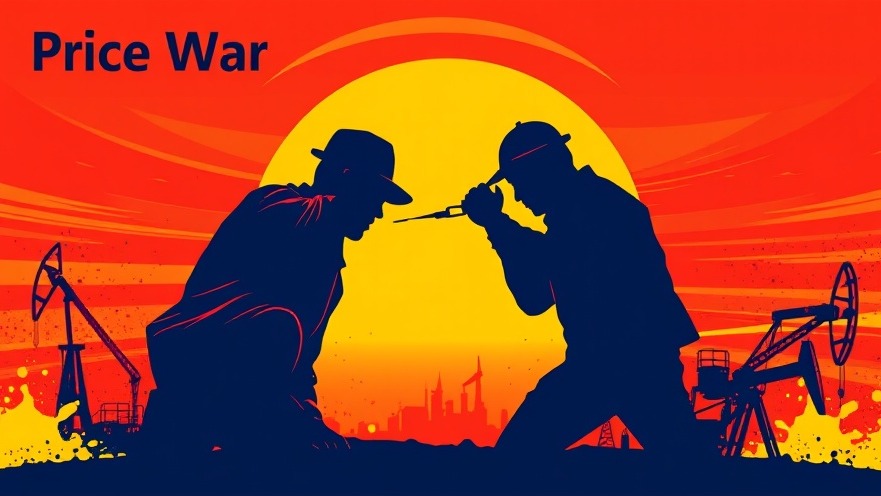
The Clash of Titans: Dangote vs. DAPPMAN in Nigeria’s Fuel Sector
Nigeria's oil industry is rife with tension as the battle between Dangote and the Downstream and Midstream Petroleum Marketers Association of Nigeria (DAPPMAN) escalates. Recently, DAPPMAN accused Dangote of undermining fair market practices by slashing petrol prices for foreign buyers, consequently squeezing the local market. This brewing conflict, exacerbated by the announcement of yet another reduction in petrol prices—from 865 naira to 841 naira per liter—sparks questions regarding market dynamics and consumer benefits in this volatile sector.
In 'Dangote vs DAPPMAN: Petrol Price War Rocks Nigeria’s Oil Sector,' the discussion delves into the current challenges and allegations faced in Nigeria’s midstream and downstream oil sector, encouraging further analysis on this significant topic.
Understanding the Stakes: Who Benefits?
The latest price cuts from Dangote's refinery have prompted widespread reactions from industry players, particularly DAPPMAN, who allege that, by reducing local prices while simultaneously selling at a discount abroad, Dangote is engaging in predatory pricing. This tactic could destabilize the market for existing players who import petroleum products and are already facing financial pressures. Yet, many analysts argue that such disruption may ultimately benefit consumers by increasing competition, potentially leading to improved pricing and supply stability.
Market Forces at Play: The Bigger Picture
The rise and fall of petrol prices are deeply intertwined with global market dynamics, including crude oil prices and refining margins. According to industry insiders, while Dangote aspires for market dominance, external factors also drive pricing strategies. The Nigerian National Petroleum Corporation's underinvestment and the consistent issues surrounding pipeline vandalization have historically crippled domestic refining capacities, leaving the door wide open for aggressive players like Dangote to maneuver and reshape the landscape.
Historical Context: Failures and Opportunities
Historically, Nigeria has struggled with inefficiencies in its oil sector, primarily due to chronic underinvestment and regulatory failures. These factors paved the way for imported refinements to emerge as a stop-gap solution amid domestic shortfalls. Nevertheless, with Dangote's entry into the market, there is potential for a robust local alternative that might reduce Nigeria’s dependency on imported oil, thereby improving the nation’s foreign exchange situation. However, the need for transparency and collaboration between industry players cannot be overstated to ensure that such an opportunity does not disadvantage local supply chains.
Disruption: A Double-Edged Sword
While the promise of lower prices at the pump is enticing for consumers, the implications are complex. Disruption in the supply chain, as foreseen by market analysts, could manifest in various ways—from potential job losses to regulatory hurdles. Both sides must navigate this delicate landscape where maintaining competitive integrity without sacrificing essential employment and operational structures is crucial.
Future Predictions: Where Do We Go from Here?
Moving forward, as the Nigerian oil sector continues to grapple with these unprecedented challenges, one must consider the implications for the country's economic strategy. Will the government step in to mediate conflicts and ensure equitable practices, or will market forces dictate the narrative? Industry experts suggest that the outcome could hinge on effective regulatory frameworks and a willingness from stakeholders to come to the table collaboratively.
In conclusion, the ongoing feud between Dangote and DAPPMAN reflects deeper issues within Nigeria’s oil sector. As key players push for their competitive edge, consumer interests must also be safeguarded. Ultimately, this battle may serve as a transformative moment for Nigeria's oil market, marking the transition from a history of inefficiency to a future driven by competition and innovation.
 Add Row
Add Row  Add
Add 


Write A Comment